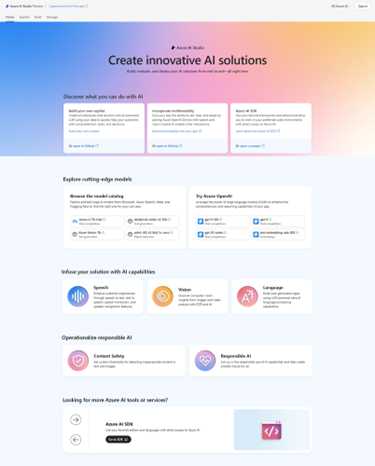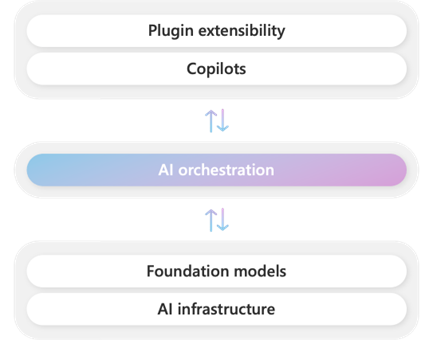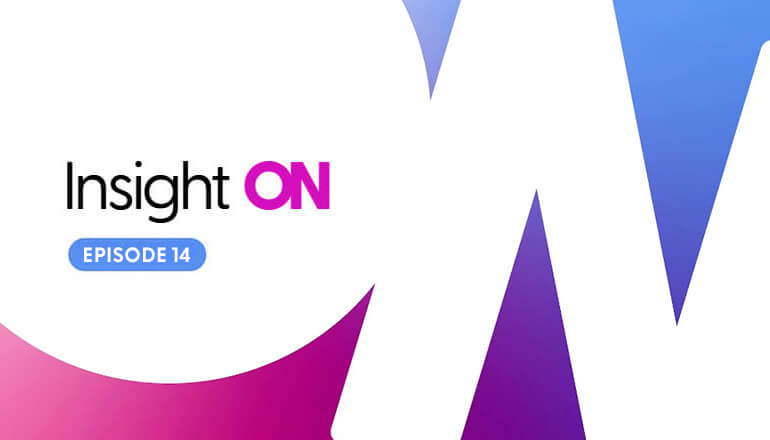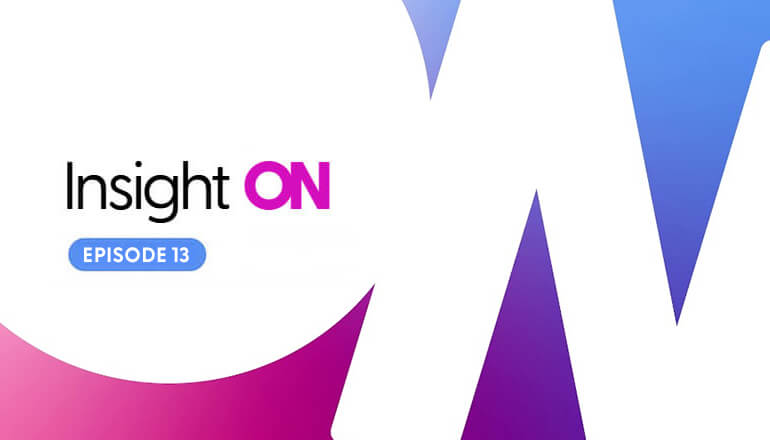Article What’s New from Microsoft Ignite? 4 Key updates around Azure OpenAI with Copilot
What’s New from Microsoft Ignite?
4 Key updates around Azure OpenAI with Copilot
By Insight UK / 15 Dec 2023 / Topics: Artificial Intelligence (AI)
Microsoft Ignite 2023 held a few weeks ago at Microsoft’s global headquarters in Seattle Washington, focused all about innovation. With the most prominent topic being Azure OpenAI and Copilot and a showcase Microsoft's latest advancements in AI and data. The event brought together IT professionals, developers, and business leaders from around the globe to explore the latest trends and technologies shaping Microsoft’s strategy for the foreseeable future. In that respect it was a significant ignite like none other.
The Keynote was covered by various speakers, notably -
● Satya Nadella, Chairman and CEO, Microsoft
● Scott Guthrie, Executive Vice President, Cloud + AI Group
● Rajesh Jha, Executive Vice President, Experiences + Devices
Throughout the event, we heard significant number of announcements and releases. Here are my key takeaways around the releases.
Update 1 - Azure AI Studio Launched
Development tools for AI are nothing new. However, exploring Generative AI can be dauting, navigating the complexities of prompt engineering, vector search engines, the retrieval augmented generation (RAG) pattern, and their integration.
Microsoft announced a comprehensive platform that streamlines the AI development process, offering a unified environment for building, testing, and deploying AI solutions. This includes the leveraging of OpenAI models such as GPT4, alongside a wide array of other cutting-edge models and services. Note: At the time of writing Azure AI Studio in public preview.

Source: https://news.microsoft.com/ignite-2023-book-of-news/
Some of the features include:
Centralised Access to a suite of cutting-edge AI tools and models – including sophisticated hybrid and semantic search to power retrieval augmented generation (RAG) applications. In addition, Azure AI Studio offers a comprehensive model catalog, including the latest multimodal models such as GPT-4 Turbo with Vision, yet to be released soon to Azure OpenAI Service and open models like Falcon, Stable Diffusion, and
Llama 2.
Superior Tools will allow developers to work with models on their data and build and train their own custom models. To ensure applications work at scale, developers can test, verify, and refine model responses using prompt engineering tools like prompt flow. VS Code, GitHub Codespaces, Semantic Kernel, and LangChain integration will deliver a code-centric experience.
Responsible AI features Azure AI Studio will help developers integrate responsible AI principles into the development process and evaluate AI applications for quality and safety using Azure AI Content Safety and ongoing compliance with their high standards.
Please see more information on this update across the following sites
Unleashing the Power of Generative AI: Azure AI Studio Leads the Way
Build your own copilot with Azure AI Studio
Update 2 – The Introduction of Copilot Studio
Microsoft introduced Copilot Studio, a new tool for building, customising, and managing Copilot. New features in Copilot for Microsoft 365 were also introduced. Microsoft aims to bring Copilot to everyone. Additionally, what used to be a popular tool on the Power Platform, Power Virtual agent has been merged with Copilot Studio. All its capabilities and features are now part of Microsoft Copilot Studio with enhanced integrations across Microsoft Copilot.
Copilot will carry on the “low code” mantel and it will allow developers to customise Microsoft Copilot for Microsoft 365. This gives the ability to build standalone copilots, offering a set of powerful conversational capabilities—from custom GPTs, to generative AI plugins, to manual topics enabling:
● Customisation of Copilot for Microsoft 365 with bespoke own enterprise scenarios.
● Build, test, and publish standalone copilots and custom GPTs, easily from a single Web User Interface (UI) experience.
● Manage and secure customisations and standalone copilots with the right access, data, user controls, and analytics.
Copilot Studio is available today, however, the integration with Copilot for Microsoft 365 is now available in public preview.
Please see more information on this update on this site: visit the Copilot Studio website.
Update 3- Semantic Kernel
Amongst the new slew of Copilots, it seems what is truly powering them all is this new AI orchestration library called Semantic Kernel. The development of this layer, albeit with much less fanfare, will be key to watch out for as the hidden figure at the centre of all, that significantly changes the game of orchestration with GPT and LLM models.
Semantic Kernel is a lightweight open-source SDK that allows AI developers to combine AI services such as OpenAI, Azure OpenAI, and Hugging Face with conventional programming languages like C# and Python, to create AI apps that combine the best of both worlds.
For example: There are several illustrations of how developers can exploit OpenAI’s new code interpreter tool, utilising functions to accomplish actions, for instance. Not all functions, however, are suited for code interpreter. For performance reasons and to reduce the token usage, Semantic Kernel’s planner classes that could generate an entire plan that could be executed optimally.

Semantic Kernel is at the heart of the Microsoft copilot stack as an AI orchestration layer that can help combine AI models and plugins together to create brand new innovative experiences. It makes development of AI apps extensible by providing a set of connectors and plugins that make it easy to add memories and models to applications, very much like a simulated "brain".
Semantic Kernel is currently in beta but due to release as version 1.0. soon.
Please see more information on this update on this site here.
Update 4 - Microsoft Fabric
Microsoft Fabric is now generally available. During Build 2023, Satya Nadella, CEO and Chairman of Microsoft, said, Fabric is “perhaps the biggest launch of a data product from Microsoft since the launch of SQL Server.” Powered at the heart with Databricks new capabilities, including a new ‘OneLake’, Fabric is touted as a complete analytics platform.
Fabric brings together Microsoft Power BI, Azure Synapse Analytics, and Azure Data Factory to create a single, unified software as a service (SaaS) platform with seven core workloads—each purpose-built for specific personas and specific tasks. By creating a single platform with tools for every data professional in a unified experience and architecture, Fabric can reduce the typical cost and effort of integrating analytics services and help simplify data lifecycle. Fabric’s unified architecture simplifies billing by providing a single pool of capacity and storage that is used for every workload. It also offers end-to-end governance and security capabilities that work across the data estate and beyond.
Please see more information on this update on this site here.
Other significant announcements:
Partnerships: Microsoft announced partnerships with AMD and NVIDIA to rethink cloud infrastructure with new AI-optimized silicon and Azure Boost2.
New AI Capabilities:
● Azure Synapse Link for Dataverse, which allows businesses to connect their Dataverse data to Azure Synapse Analytics for real-time insights.
● Azure Arc for Data Services, which brings Azure data services to on-premises and hybrid environments.
● Azure Kubernetes Service (AKS) for Machine Learning (ML), which makes it easier to deploy and manage machine learning models in Kubernetes clusters.
Several new foundation models and tooling were also announced, including:
● LaMDA, a large language model that can generate text, translate languages, write different kinds of creative content, and answer your questions in an informative way.
● Custom Vision Service, a tool for building custom image and video classifiers.
● Azure Machine Learning Service, a cloud-based service for training and deploying machine learning models.
Several new features for managing and protecting data, including:
● Azure Purview, a data governance tool that helps businesses understand and manage their data assets.
● Azure Sentinel, a threat detection and response solution that helps businesses protect their data from cyberattacks.
● Microsoft 365 Security Center, a central hub for managing security across Microsoft 365 products.
A complete list of announcements can be found here.
All in all, Microsoft Ignite 2023 turned out to be a significant event with releases and products that significantly impact organisations and developer communities. It provided a front-row seat to the AI transformation with Azure and Microsoft’s cloud ecosystem and its future.
Explore how to take advantage of the latest updates with Insight:
Maximise your cloud
Get AI Ready





